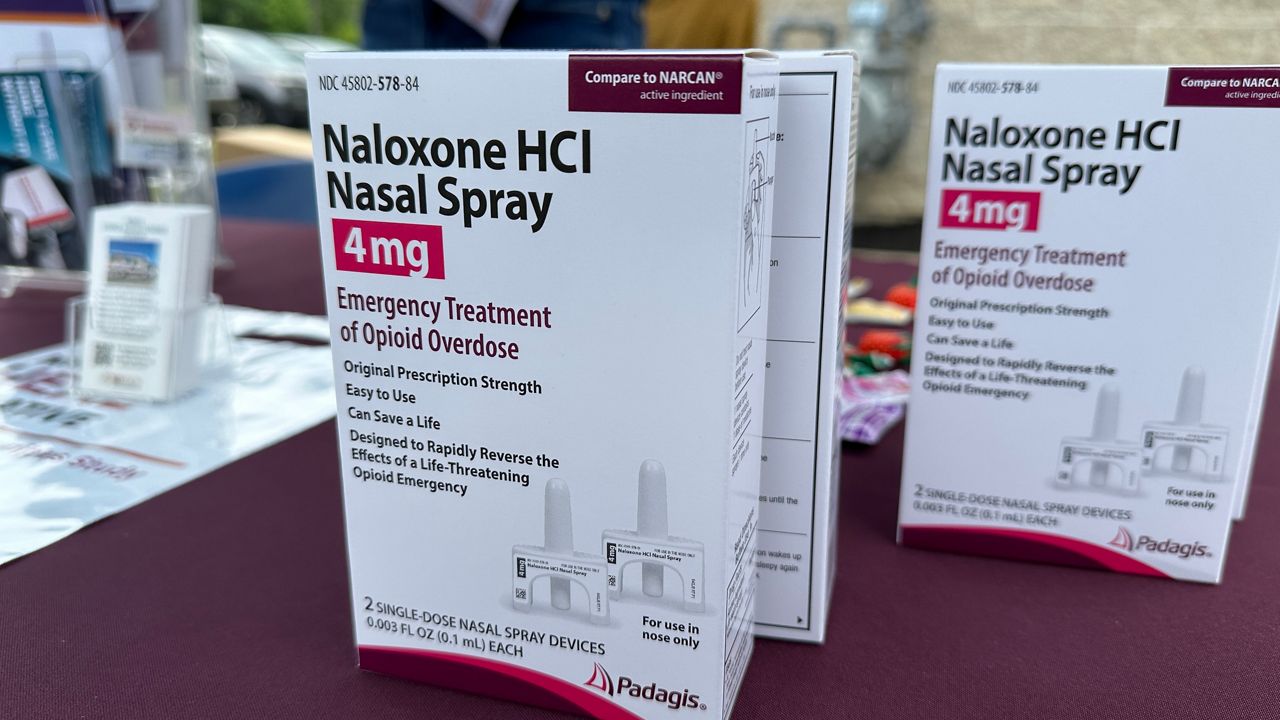FRANKFORT, Ky. — Gov. Andy Beshear, D-Ky., announced Calloway, Daviess, Fayette and Pulaski counties are now "Recovery Ready" communities.
Since the program started in May 2023, Kentucky has certified 18 counties for establishing services to residents seeking help for drug or alcohol addiction in three categories: prevention, treatment and recovery support. According to the 2023 Kentucky Drug Overdose Fatality Report, released in June, Kentucky saw a 9.8% decline in drug overdose deaths in 2023.
“We have now guaranteed that addiction services are available to a third of our state’s population,” Beshear said. "We won’t stop working until every life and family are saved from addiction, so we continue to encourage the remaining counties to identify gaps in services and to work with our administration to achieve certification. I am proud of the tens of thousands of Kentuckians who are in recovery, and we pray for their continued healing and growth.”
Beshear's office said the certification of Calloway, Daviess, Fayette and Pulaski counties will not only allow Kentuckians to make positive lifestyle changes but also help fill much-needed jobs and contribute to the state's economic growth. The program measures a city's or county’s substance use disorder recovery efforts.
“Every day that we can certify another county as Recovery Ready means more and more Kentuckians are able to achieve recovery with access to peer support services, mental health treatment, addiction treatment, employment services and a stigma-free environment,” said Pam Darnall, chair of the Recovery Ready Communities Advisory Council. "I commend Calloway, Daviess, Fayette and Pulaski counties for joining in the state’s fight to reduce overdoses, eliminate addiction and save Kentucky families."
Here's a look at each county's work:
- Calloway: Calloway County Health Department and Four Rivers Behavioral Health provide free access to naloxone, fentanyl test strips and wound care kits. Residents also have access to primary care providers who incorporate behavioral health services such as access to medications for addiction into their routine clinic operations, helping reduce stigma and increase access to mental health services.
- Daviess: The county's harm reduction programs are focused on drug prevention, and Beshear's office said treatment providers make regular referrals among one another to avoid creating waiting lists and ensure Kentuckians ready to achieve recovery do not have to wait. Daviess County's local judicial system follows a treatment-oriented approach, meaning there are multiple emergency shelters with several treatment components, in addition to recovery housing open to both men and women.
- Fayette: Kentucky's second-largest county has a robust mobile outreach program to reach isolated populations, providing residents with harm reduction education and supplies, peer support services and on-demand addiction treatment. The county also offers multiple daily recovery meetings to accommodate all types of schedules. In addition, its Community Paramedicine program, founded in 2018, pairs teams of firefighters, paramedics, social workers and police officers to reach high-risk populations and reduce ambulance trips to the emergency room. The program responded to more than 1,800 cases of nonfatal overdoses last year.
- Pulaski: The county's robust network of social service agencies helps address issues around food, housing and transportation. Beshear's office added the county offers extensive access to second chance employers for those who are in recovery or were previously incarcerated.
More on the program can be found online. Those needing treatment help can call the KY Help Call Center at 833-859-4357 to speak one-on-one with a specialist.



